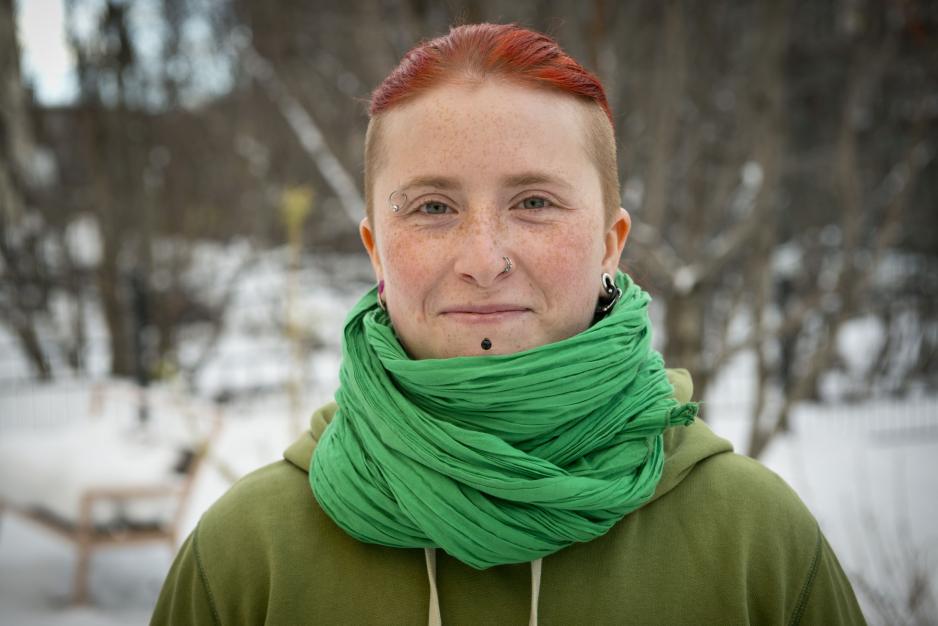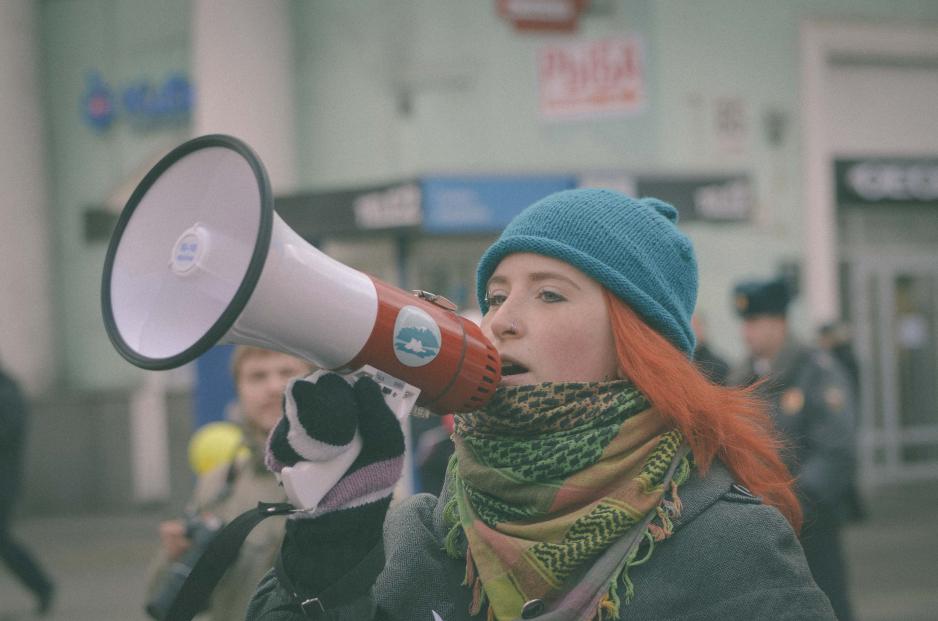Russian Activist from Murmansk Takes Her Homeland to Court in Strasbourg

The freedom of assembly was and still is important to me, and I would be happy if the Court could point out Russia’s mistake, says activist Tatiana Kubalkina. Photo: Vkontakte.ru
This month, Tatiana Kulbakina from Murmansk will be heard in the European Court of Human Rights (ECHR). She has filed charges against Russia for violating the right to assemble freely.
In 2013, Tatiana Kulbakina filed charges against the Russian state with the European Court of Human Rights (ECHR) in Strasbourg for two incidents that she argues constitute violations against the European Human Rights Convention.
The case is currently under consideration in Strasbourg, the Court’s press office confirms in an email to High North News.
- Freedom of assembly is important to me
The environmental and human rights activist from Murmansk in Northwestern Russia argues that she was denied permission to organize a demonstration in support of the imprisoned band members of Pussy Riot in 2012, and that she was later denied processing of her complaint regarding a different demonstration that was also not permitted in 2014.
These incidents constitute a violation of the ECHR’s sections 11 and 13, she argues, sections that are to ensure citizens’ right to freedom of assembly and association, as well as their right to have a case tried in court if they feel that these rights have been violated.
- The freedom of assembly was and still is important to me, and I would be happy if the Court could point out Russia’s mistake, Kulbakina says to the independent Russian newspaper 7x7 about her case currently being considered.
- At the same time, our problems with the authorities in 2012 and 2014 were only the beginning of the current suppression of the right to protest peacefully.
She refers to the fact that the incidents took place a long time ago.
- Our demands must be more serious now. This complaint is but a small piece of the struggle for the right to freedom of assembly. But every piece of the puzzle is important.

Tatiana Kulbakina from Murmansk argues that she was denied organizing a demonstration in support of the imprisoned band members of Pussy Riot in 2012. Here pictured at a different demonstration. Photo: Vkontakte.ru
Wanted to demonstrate
It all started when Kulbakina wanted to organize a demonstration in support of the protest and punk rock band Pussy Riot in April 2012.
One month earlier, Pussy Riot had received international attention following their entering the famous Christ the Savior cathedral in Moscow and recording songs there that spited Putin.
Three of the band members were arrested in the aftermath, and Kulbakina wanted to protest against this. She filed for permission to organize a demonstration outside the building of the Russian secret service, FSB, in Murmansk; however, her request was denied.
Local authorities argued that the pavement was too narrow for the 10-20 protesters the activists assumed would attend, and suggested the demonstration be held elsewhere.
Kulbakina appealed the decision before the court, however, the case was not heard before the time on which the demonstration was to have taken place.
Tatiana Kulbakina therefor held a solo protest against the imprisonment of Pussy Riot outside the FSB in Murmansk. When her appeal was later processed by the court, the court supported the local authorities’ decision.
The other incident that Kulbakina has brought before the ECHR is regarding a demonstration that activists in Murmansk wanted to conduct in support of activist Alexey Rashodtshikov, who was imprisoned following allegations about violence against the police.
The demonstration was not permitted, and Kulbakina appealed this before a local court as participant of the demonstration. The court did not want to process the appeal.
Russia among the worst at the ECHR
As a member of the Council of Europe, Russia has ratified the European Human Rights Convention and is subject to the European Court of Human Rights.
However; Russia is amongst the countries with the most cases pending before the ECHR and holding the highest percentage of non-implemented rulings.
This year, Russia is second only to Turkey on the list of countries with the highest number of complaints accepted by the Court in Strasbourg, according to Norwegian daily Dagbladet. Up until November this year, the Court had accepted 138 Russian appeal cases, only surpassed by Turkey’s 167 cases.
During the past five years, the court has accepted 1,234 Russian and 1,030 Turkish cases, according to a count by the paper.
Kulbanika has been repeatedly arrested for her activism. She has a background from the anti-fascist movement in Northern Russia and has become strongly involved with the fight against nuclear power and fossil fuel sources.
She has held leading positions in Piroda I Molodyosh, Young Friends of the Earth in Russia, as well as the youth organization Humanistic Youth Movement. She has now moved from Russia, according to 7x7, but continues engaging in the political situation in her homeland.
